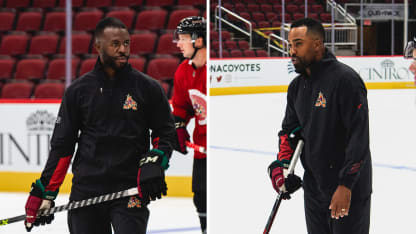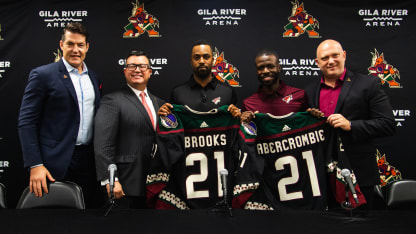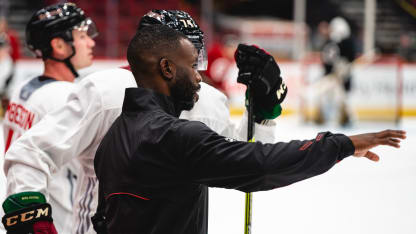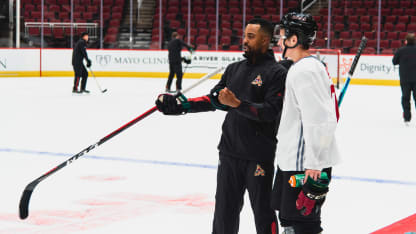General Manager Bill Armstrong has been inspired by their presence.
"You can tell that they're passionate because they've coached from the grassroots levels," Armstrong said. "You do that for the love of the game. You're not making millions of dollars doing that; you're invested in the passion and teaching and making other people better."
Armstrong remembers being provided a similar opportunity when his playing career ended.
"When I was 28, I got a chance to go to the Bruins camp as a guest coach," Armstrong said. "So, when Xavier approached me with this (idea), I remembered that. That was a game-changer for me. I went in as a coach to camp and I had all these great coaches around me -- Pat Burns and Jacques Laperrière. What I learned in two weeks changed my life."
Tourigny's coaching career began in a similar fashion.
"That's the way I started," Tourigny said. "If I go back into my story, I was a guest coach at a junior camp, just to help out. One year later, they called and offered me a position as a scout. The year after that, I became a coach.
"I think your experience in life gives you an ability to make a connection with people. I really hope (Nathaniel and Duante') feel at home with us, that they feel comfortable, ask questions, be on the ice and be part of the family. That's the environment we want to have. We want them to be here and to feel like they're part of the family and feel welcome here. We're happy to have them."
Brooks addressed diversity -- how it's improved and its current state.
"I think we're on the way to seeing more diversity in hockey," Brooks said. "You have the Coyotes doing this great thing. I look to the youth level. I grew up playing in a time when there were probably five or six of us across the entire GTHL. Now, you walk into a Toronto rink, and you have about four or five diverse kids per team. I'm not just talking about black kids, but I'm talking about kids across all races. I think now, we're starting to see it, it's becoming more normalized, and I like to think for the guys in my generation who came up in the GTHL, we kind of went through the hard times. We pushed through, and now to be leaders and empower those kids is so awesome. I think we're in a great place, and we're only going to go up from here."







